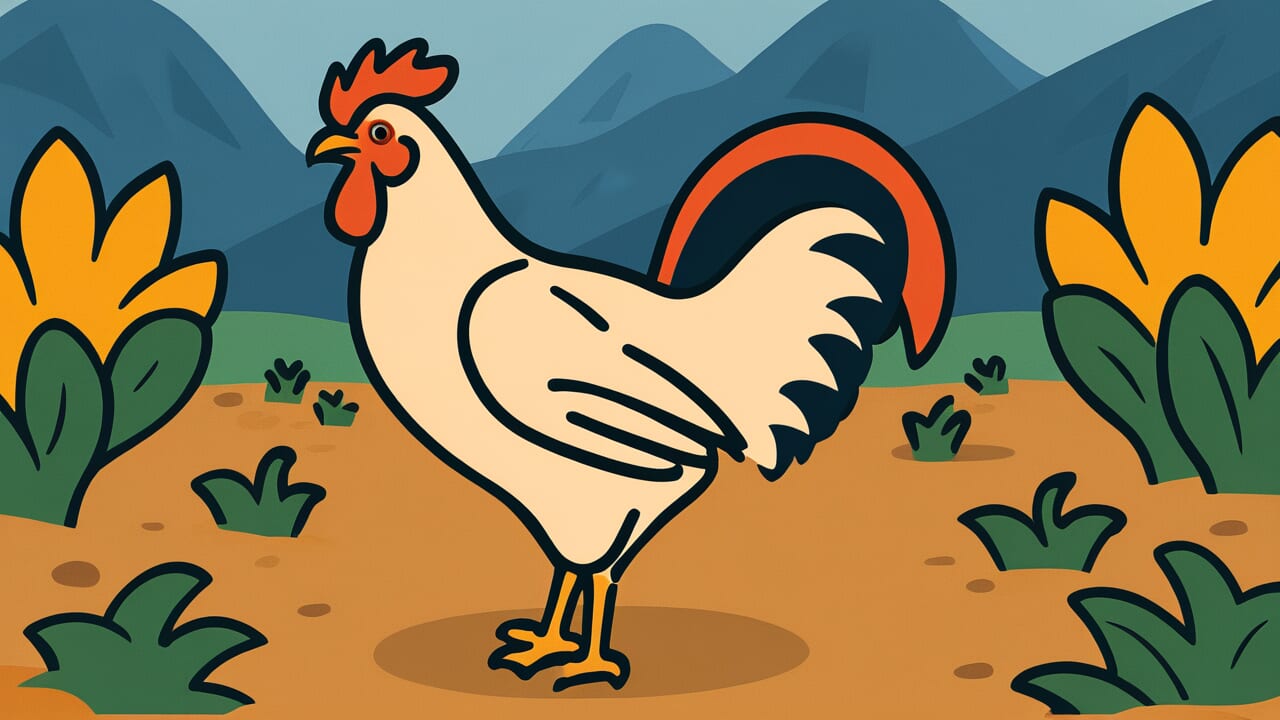How to Read “When one rooster crows, ten thousand roosters sing”
Ikkei nakeba bankei utau
Meaning of “When one rooster crows, ten thousand roosters sing”
“When one rooster crows, ten thousand roosters sing” means that when one person starts something, many others follow along and do the same thing.
This proverb sharply captures human group psychology. It describes situations where one person takes the first step, and then everyone who was watching suddenly joins in.
You see this when someone speaks up in a meeting and suddenly everyone starts sharing opinions. Or when one person starts clapping and the whole room erupts in applause. These chain-reaction behaviors are what this saying is all about.
Even in modern society, this human tendency hasn’t changed. When someone posts something on social media, it spreads instantly. When people see a line at a restaurant, more people gather.
This proverb teaches us two things. First, the person who takes the first step has enormous influence. Second, people naturally tend to follow what others do.
Origin and Etymology
There are no clear written records about the origin of this proverb. However, we can make interesting observations from how the phrase is constructed.
“When one rooster crows, ten thousand roosters sing” likely came from observing chicken behavior. Anyone who has raised chickens on a farm or in a village knows this phenomenon well.
When one chicken starts crowing, others follow in a chain reaction. This is especially noticeable before dawn. When one rooster announces the morning, the surrounding roosters respond and start crowing too.
This natural scene must have made a strong impression on people long ago.
The proverb overlaps this natural phenomenon with human social behavior patterns. The contrast between “one” and “ten thousand” may show influence from classical Chinese expressions.
It expresses how one small beginning spreads into a large group movement. The proverb uses chickens, which were among the most familiar animals in agricultural society.
This made it an easy metaphor for people to relate to and understand.
Usage Examples
- When she asked a question, it was like “when one rooster crows, ten thousand roosters sing” – everyone started raising their hands one after another
- Once one person started leaving, it was “when one rooster crows, ten thousand roosters sing” – the venue emptied in no time
Universal Wisdom
“When one rooster crows, ten thousand roosters sing” shows our essential nature as social beings. We cannot live in isolation. We constantly observe others and are influenced by their actions.
Why do people follow others? It’s deeply connected to our fear of being isolated and the comfort we feel belonging to the majority.
Until the first person acts, most people just watch and wait. They worry about being wrong or standing out. This anxiety puts a brake on their actions.
But when someone takes that first brave step, the anxiety dissolves instantly. A sense of relief spreads – “Oh, I’m not alone in this.” Then people start moving like a dam has burst.
This proverb has been passed down through generations because this human trait never changes across time. In ancient village societies and modern urban societies alike, people tend to decide their actions based on what others do.
Our ancestors brilliantly expressed this human essence by comparing it to the familiar phenomenon of roosters crowing.
When AI Hears This
The phenomenon of one rooster crowing and ten thousand singing is exactly what network science calls a “cascade” – a chain reaction. What matters is where the first rooster crows – the position problem.
Network theory shows that when about 10 to 25 percent respond, you cross a “tipping point” and it spreads rapidly to everyone. With ten thousand roosters, once about 2,500 start crowing, an unstoppable chain begins.
What’s interesting is that the first rooster’s influence changes dramatically based on its “number of connections.” A rooster in the center with many neighbors spreads the sound dozens of times faster than an isolated one on the edge.
This is called a “hub” – like a social media account with many followers.
Even more fascinating is how “timing” can reverse the outcome with the same single crow. If roosters are sleepy in early morning, they ignore it. But at that delicate moment when they’re waking up, it spreads explosively.
This is when the whole system is just before the tipping point – what physics calls a “metastable state.” Revolutions and stock market crashes happen suddenly because society reached this unstable state. The trigger itself can be trivial.
Lessons for Today
This proverb teaches modern people about the power of their own actions. If you have the courage to take the first step, you might trigger many others to move. When you start something good, it spreads to those around you.
At the same time, this proverb asks us to be careful. It warns about the danger of following along without thinking just because someone else started it.
Before acting just because “everyone’s doing it,” develop the habit of pausing to think.
In modern society, information and trends spread instantly. That’s why having your own judgment is crucial. Actively join good waves, but don’t blindly follow flows that make you question.
This balance will be the wisdom for living in the coming era.
Your one action might push someone forward. Keep that responsibility and possibility in mind as you make choices true to yourself.



Comments